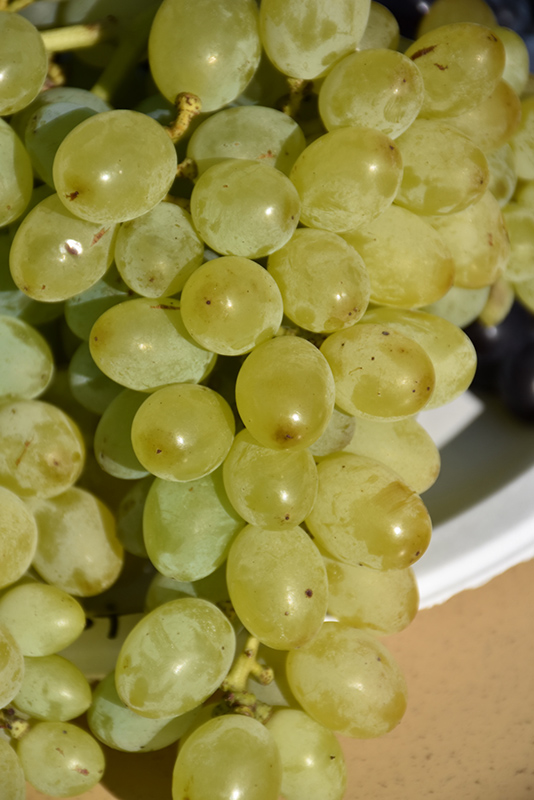>> Home
Height: 15 feet
Spread: 24 inches
Sunlight:
![]()
Hardiness Zone: 4
Description:
An excellent selection featuring light green, seedless berries with a fabulous sweet flavor, great for fresh eating; a vigorous vine, resistant to cracking; use as a screen for arbors or trailing along fences, requires regular pruning and full sun
Edible Qualities
Neptue Grape is a woody vine that is typically grown for its edible qualities. It produces large clusters of light green round fruit with chartreuse overtones which are usually ready for picking from mid to late summer. The seedlessfruits have a sweet taste and a juicy texture.
The fruit are most often used in the following ways:
- Fresh Eating
- Preserves
- Juice-Making
Features & Attributes
Neptue Grape has rich green deciduous foliage on a plant with a spreading habit of growth. The lobed leaves turn yellow in fall. It produces abundant clusters of light green grapes with chartreuse overtones from mid to late summer.
This is a dense multi-stemmed deciduous woody vine with a spreading, ground-hugging habit of growth. Its relatively coarse texture can be used to stand it apart from other landscape plants with finer foliage. This is a high maintenance plant that will require regular care and upkeep, and requires a special pruning regimen to reliably produce fruit; consult a specific reference guide or contact the store for proper pruning techniques. It is a good choice for attracting birds to your yard. Gardeners should be aware of the following characteristic(s) that may warrant special consideration;
- Spreading
Aside from its primary use as an edible, Neptue Grape is sutiable for the following landscape applications;
- Hedges/Screening
- General Garden Use
- Orchard/Edible Landscaping
Planting & Growing
Neptue Grape will grow to be about 15 feet tall at maturity, with a spread of 24 inches. As a climbing vine, it should be planted next to a fence, trellis or other rigid structure where it can be trained to grow upwards on it. It grows at a fast rate, and under ideal conditions can be expected to live for approximately 20 years. This is a self-pollinating variety, so it doesn't require a second plant nearby to set fruit.
This woody vine is typically grown in a designated area of the yard because of its mature size and spread. It should only be grown in full sunlight. It prefers to grow in average to moist conditions, and shouldn't be allowed to dry out. It may require supplemental watering during periods of drought or extended heat. It is not particular as to soil type or pH. It is somewhat tolerant of urban pollution. Consider applying a thick mulch around the root zone in winter to protect it in exposed locations or colder microclimates. This particular variety is an interspecific hybrid.
